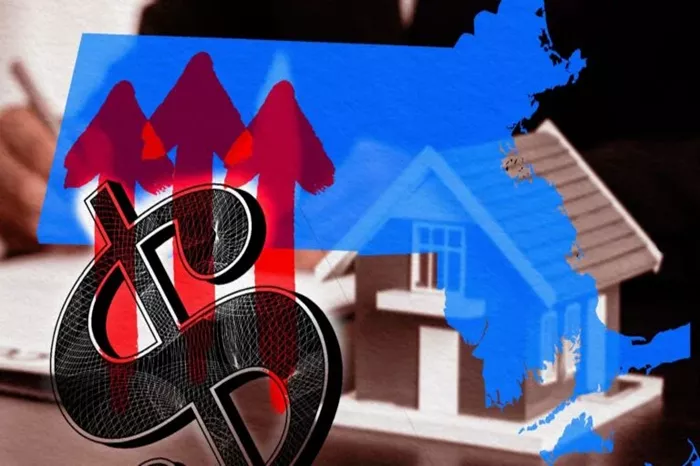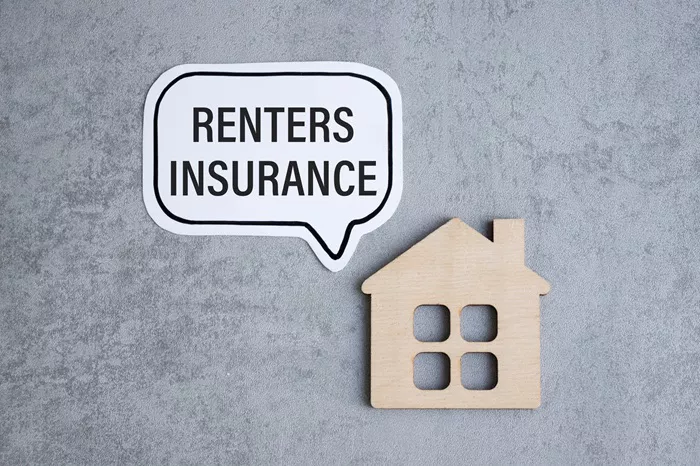Home insurance provides essential protection for your property and belongings, but there are several factors that can lead to your policy being voided, which means you would be left without coverage precisely when you need it most. Understanding these potential pitfalls is crucial for maintaining your insurance coverage and safeguarding your home from unforeseen risks. This article delves into what can void home insurance, detailing various actions and circumstances that could jeopardize your policy. By familiarizing yourself with these aspects, you can make informed decisions to ensure your home remains adequately protected.
1. Failure to Disclose Information
When applying for home insurance, it is imperative to provide accurate and complete information about your property and personal circumstances. Failure to disclose pertinent details can lead to significant issues with your insurance coverage.
Inaccurate Information
Providing incorrect information about your home’s features, such as its size, construction materials, or the presence of safety features, can result in your insurer being unable to accurately assess the risk associated with insuring your property. This discrepancy can lead to denied claims or even the cancellation of your policy if the insurer determines that the information was deliberately misleading.
Omission of Risk Factors
Failing to disclose risk factors, such as a history of prior claims, previous damage, or specific environmental risks (e.g., residing in a flood-prone area), can lead your insurer to void your policy. This is because the insurer may consider the undisclosed risks as a basis for their decision on the coverage they provide, making your policy invalid if those risks come to light later on.
2. Non-Payment of Premiums
Regular payment of premiums is a fundamental requirement for maintaining an active home insurance policy. Missing payments can have serious repercussions for your coverage.
Grace Periods and Cancellation
Most insurers offer a grace period for missed premium payments, during which your policy remains active despite the delay. However, if the premiums are not paid within this grace period, your insurer may proceed with canceling your policy. It is crucial to be aware of your insurer’s specific grace period and payment policies to avoid having your coverage lapse.
Consequences of Lapsed Coverage
If your policy lapses due to non-payment, you are not covered for any claims made during the period of non-payment. This lapse leaves you financially exposed to potential losses or damages that occur while your policy is inactive, making timely payment of premiums essential to maintaining your protection.
3. Unapproved Renovations and Repairs
Making significant changes or repairs to your home without informing your insurer can lead to problems with your insurance coverage.
Major Renovations
When undertaking large-scale renovations, such as adding a new room, changing the structure of your home, or making significant upgrades, it is vital to inform your insurer. These modifications can impact the risk assessment and coverage requirements of your policy. Failing to notify your insurer of such changes can result in a voided policy if the modifications increase the risk or value of your property beyond what your policy covers.
Unauthorized Repairs
If you perform repairs on your home that do not meet building codes or safety standards, your insurer may refuse to cover any resulting damage. Unauthorized or substandard repairs can compromise the structural integrity of your home, leading to potential issues with your coverage if damage occurs due to these repairs.
4. Neglecting Property Maintenance
Proper maintenance of your home is crucial for keeping your insurance coverage valid. Neglecting essential maintenance tasks can lead to denied claims or policy issues.
Routine Maintenance
Regular maintenance tasks, such as cleaning gutters, servicing heating systems, and checking for leaks, are essential for preventing damage and ensuring the safety of your property. Failure to perform these routine maintenance tasks can result in damage that may not be covered by your insurance, as insurers expect homeowners to take reasonable steps to protect their property from preventable issues.
Signs of Neglect
Visible signs of neglect, such as overgrown vegetation, damaged roofing, or water stains, can serve as red flags to insurers. If your property shows clear indications of neglect, your insurer may question the validity of your coverage and may refuse to honor claims related to damage that could be attributed to poor maintenance.
5. Illegal Activities
Engaging in illegal activities on your property can have severe consequences for your home insurance policy.
Illegal Uses of Property
Using your home for illegal activities, such as operating an unlicensed business, conducting illegal gambling, or housing tenants without proper permits, can lead to your insurer voiding your coverage. Insurers typically exclude coverage for properties used for illegal purposes, as these activities can significantly increase the risk and potential liability.
Criminal Activity
If criminal activity, such as drug manufacturing or other illegal enterprises, is detected on your property, your insurer may cancel your policy. Engaging in criminal activities not only jeopardizes your insurance coverage but can also expose you to legal repercussions.
6. Failure to Adhere to Safety Requirements
Home insurance policies often come with specific safety requirements to reduce the risk of damage or loss. Failing to meet these requirements can result in a voided policy.
Safety Equipment
Many insurance policies require the installation and maintenance of safety equipment, such as smoke detectors, fire alarms, and security systems. Failure to install or maintain these safety features can lead to coverage issues, as insurers expect homeowners to take reasonable precautions to prevent loss or damage.
Compliance with Local Codes
It is important to ensure that any safety measures or modifications to your property comply with local building codes and regulations. Non-compliance with these codes can result in your insurance policy being voided if damage or issues arise due to such violations.
See Also: What is HO-6 Home Insurance & How to Choose It
7. Using the Property for Business Purposes
Using your home for business purposes without informing your insurer can affect your insurance coverage.
Home-Based Businesses
Running a business from your home, whether it is a formal business operation or an informal venture, can increase risks, such as liability for clients or employees. It is crucial to inform your insurer about any business activities conducted on your property to ensure that your coverage extends to these additional risks.
Commercial Insurance Needs
You may need additional commercial insurance to cover risks associated with business activities conducted on your property. Discuss your business needs with your insurer to determine whether you require supplementary coverage.
8. Allowing Uninsured Visitors
Hosting visitors or guests who are not covered by your insurance policy can lead to complications if an accident or damage occurs on your property.
Guest Injuries
If a guest is injured on your property and their medical expenses are not covered by your policy, you may be held financially responsible for their injuries. Ensure your policy includes adequate liability coverage to protect against potential claims from visitors.
Liability Coverage
Verify that your policy provides sufficient liability coverage for guests and visitors to prevent issues if accidents occur. Insurers may have specific requirements for guest coverage that you need to adhere to.
9. Unauthorized Modifications to the Property
Making unauthorized modifications to your property can affect your insurance coverage.
Building Code Violations
Modifications that do not comply with local building codes or regulations can lead to issues with your insurance coverage. Ensure that all changes made to your property are approved and meet safety standards to avoid complications.
Insurance Adjustments
Notify your insurer of any modifications to your property to ensure that your coverage is adjusted accordingly. Failure to do so may result in your policy being invalidated if the modifications increase the risk or value of your property beyond what is covered.
10. Not Following Insurer’s Instructions
Insurers may provide specific instructions for maintaining coverage and managing risks. Failing to follow these instructions can lead to a voided policy.
Policy Requirements
Adhere to any requirements or recommendations provided by your insurer, such as regular inspections, safety upgrades, or reporting changes. Insurers often include specific conditions in your policy that must be met to maintain coverage.
Communication with Insurer
Maintain open communication with your insurer and promptly address any issues or concerns they raise. This ensures that you remain informed about your policy’s requirements and any necessary actions to keep your coverage valid.
11. High-Risk Areas and Activities
Living in a high-risk area or engaging in high-risk activities can impact your insurance coverage.
Natural Disasters
If you live in an area prone to natural disasters, such as earthquakes or floods, your policy may have specific exclusions or higher premiums. It is important to understand these terms and make any necessary adjustments to your coverage.
Risk Mitigation
Take steps to mitigate risks associated with your location or activities, such as installing flood defenses or earthquake-resistant structures. Proactive risk management can help reduce the impact of high-risk factors on your coverage.
12. Misuse of Property
Using your property in ways that are not covered by your insurance policy can result in coverage issues.
Rental Properties
If you rent out part or all of your property, ensure that your policy covers rental activities. Unreported rental activities can lead to a voided policy if your insurer determines that the rental use increases the risk or liability.
Events and Gatherings
Hosting large events or gatherings without informing your insurer can also be problematic. Verify that your policy covers such activities to avoid potential issues with coverage.
Conclusion
Understanding what can void home insurance is essential for maintaining valid coverage and protecting your property. By being aware of factors such as failure to disclose information, non-payment of premiums, and unauthorized modifications, you can avoid common pitfalls and ensure your home remains adequately protected. Regularly review your policy, adhere to insurer requirements, and communicate openly with your insurer to keep your coverage intact. This proactive approach will help you safeguard your property and ensure you are protected in times of need.






















